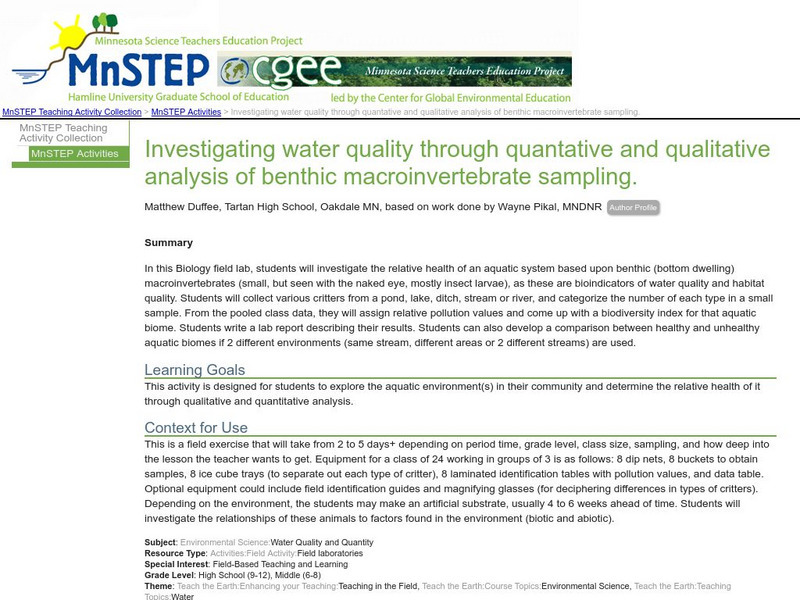Texas Education Agency
Texas Gateway: Types of Science Investigations
This tutorial will describe the three types of scientific investigations: descriptive, comparative, and experimental.
Texas Education Agency
Texas Gateway: Descriptive vs. Comparative Investigations
In the following lesson students will learn the differences between descriptive and comparative investigations.
Texas Education Agency
Texas Gateway: Scientific Reasoning Planning Investigations
Given scenarios of comparative and experimental investigations, students will plan and implement investigations by making observations and asking well-defined questions and formulating testable hypothesis.
Texas Education Agency
Texas Gateway: Investigating Methods for Solving Linear Equations, Inequalities
Given linear equations and inequalities, the student will investigate methods for solving the equations or inequalities.
Discovery Education
Discovery Education: Science Fair Central: Investigation Project Samples
Explore three science fair project samples about birds, stain removal, and keeping it cool. See how the report is written after the investigation is complete.
Science Education Resource Center at Carleton College
Serc: Investigating Trees
In this investigation, students will record an observation (drawing) of a tree in their science notebook. Following the observation, students will discuss what they observed and a list will be created by the classroom teacher. Based on...
Pennsylvania State University
Penn State Lehigh Valley: Scientific Investigation
This site presents a general overview of scientific investigation. Content explores what scientific investigation is, as well as the scientific method (the guidelines followed by all scientists).
Science Education Resource Center at Carleton College
Serc: Investigating the Water Cycle: Using Plants to Study Evaporation
In this science activity, students investigate the water cycle by testing the water evaporated from leaves (transpiration). They investigate concepts of evaporation and the movement of water through the different states of the water...
Georgia Department of Education
Ga Virtual Learning: Crime Science Investigation
In this comprehensive interactive tutorial you will learn the basic components of a crime scene investigation and how they are implemented. You will also learn various evidence collecting techniques, as well as how to properly document...
Science Education Resource Center at Carleton College
Serc: Investigating Rotation: Why Is There Day and Night?
In this rotation activity, students investigate what causes day and night by participating in a classroom activity. Students will observe, question, and investigate how the relationship between the earth and sun causes day and night.
Science Education Resource Center at Carleton College
Serc: Investigating South Crow River: Discharge, Turbidity, Erosion, Sediments
In this field investigation, small groups of students will observe and measure characteristics of the South Crow River near Mayer, Minnesota. Data collection on these characteristics will include but not be limited to: speed of current...
Science Education Resource Center at Carleton College
Serc: Investigating Sounds: Identifying Vibration, Pitch, and Volume
In this investigation, students will observe and experiment with how sounds are made. They will use various elementary music instruments as well as tuning forks, combs, rubber bands, books, bottles, etc. They will collect data on how...
Science Education Resource Center at Carleton College
Serc: Investigating Processes of Sedimentation in Gravel Pits
For this field investigation, students will investigate processes of deposition that have contributed to the current Minnesota sediments and landscape. After learning about weathering and erosion and having a short introduction to...
Science Education Resource Center at Carleton College
Serc: Investigating the Rate of Weathering on Various Rock Types.
In this Earth Science field investigation, students will make observations of the rock above and below the Minneopa State Park waterfalls. Students will then make observations of gravestones at Minneopa Cemetery. Through these...
Science Education Resource Center at Carleton College
Serc: Investigating Speed and Acceleration Using Tornado Tubes
In this activity, students will use a plywood ramp and various tornado tubes (made from tornado tube connectors and 2 liter pop bottles) to calculate the average speed of the tornado tubes. They will set up 4 investigations filling the 2...
Science Education Resource Center at Carleton College
Serc: Investigating Rotational Inertial Using Tops
In this inquiry or guided inquiry (depending on grade level) investigation, students will examine factors affecting rotational inertia. Students will keep a science journal of their investigation.
Science Education Resource Center at Carleton College
Serc: Investigating the Precipitation Streamflow Relationship
The intricate relationship between precipitation and streamflow is illustrative of the complexity and changing nature of the water cycle. These key aspects can be investigated to help understand the water cycle. The duration and...
Science Education Resource Center at Carleton College
Serc: Investigating Motion With Marbles
In this guided inquiry activity, students will use 2 marbles of different size and a box to investigate what makes the marbles move and what will cause the marbles to change speed and direction.
FOX News
Fox News: Columbia Accident Investigation Board Report (Volume I) Aug. 26, 2003 [Pdf]
This is an outstanding primary resource. Part I of the Columbia Accident Investigation Board's report has a plethora of great information including photos, review of the events surrounding the Columbia disaster, and official findings....
Science Education Resource Center at Carleton College
Serc: Investigating the Rock Cycle Through Writing and Illustrating
In this writing and illustrating activity, students will be able to follow a simple rock cycle to follow the life of "Rocky the Rock". After investigating the rock cycle, students will then be able to illustrate the rock cycle, along...
Science Education Resource Center at Carleton College
Serc: Investigating Acids and Bases: Strong vs Weak
In this chemistry lab activity, students will study acids/bases before learning how titration data is used to determine an unknown concentration. It is an investigation of the pH curve and an assessment of student's understanding of...
Science Education Resource Center at Carleton College
Serc: Investigating Calculating the Effect of Mass, Length and Displacement
In this physics lab activity young scholars investigate how mass, length and angular displacement affect the period of a simple pendulum. Students control variables, testing one variable at a time, using manual techniques (stopwatch,...
Science Education Resource Center at Carleton College
Serc: Investigating Water Quality Through Quantative and Qualitative Analysis
By looking at the bottom dwelling macroinvertebrates, students will investigate water quality and habitat quality in this field lab. Students will record the number of creatures found at the bottom of a pond, lake, ditch, stream or river...
Science Education Resource Center at Carleton College
Serc: Investigating Static Electricity: Creating Lightning on Much Smaller Scale
In this elementary science activity, students will experiment with static electricity using balloons. After investigating how balloons attract and repel various objects, students will watch a simulation of static electricity to help gain...
Other popular searches
- Mathematical Investigations
- Scientific Investigations
- Science Investigations
- Field Investigations
- Hands on Investigations
- Designing Investigations
- Math Investigations
- Conducting Investigations
- Class Investigations
- Crime Scene Investigations
- Pythagoras Investigations
- Water Cycle Investigations


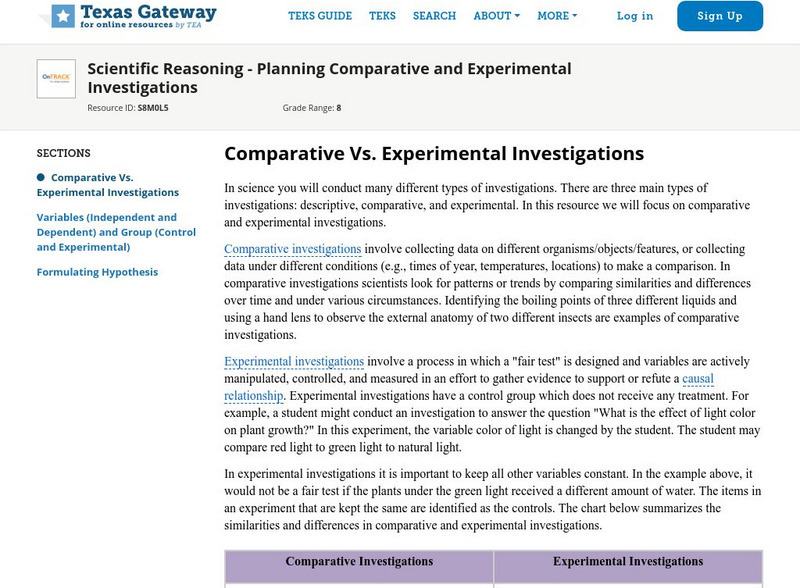




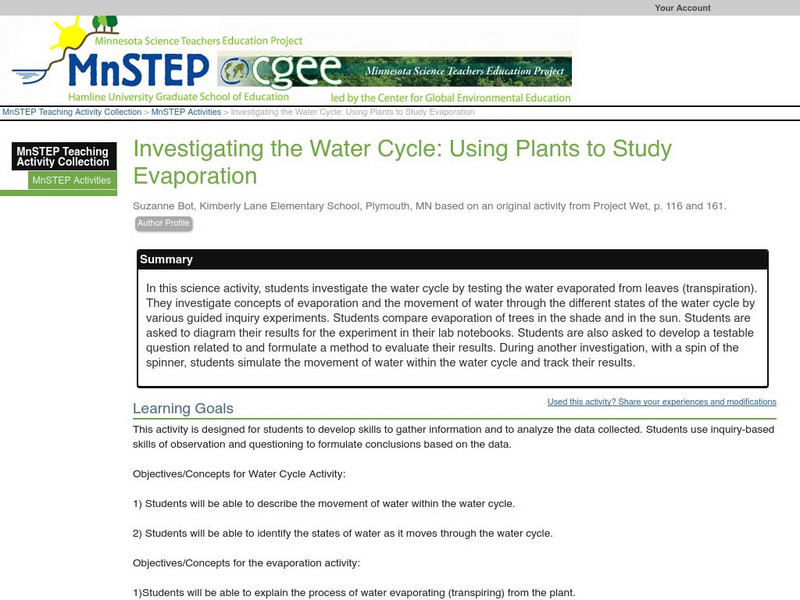



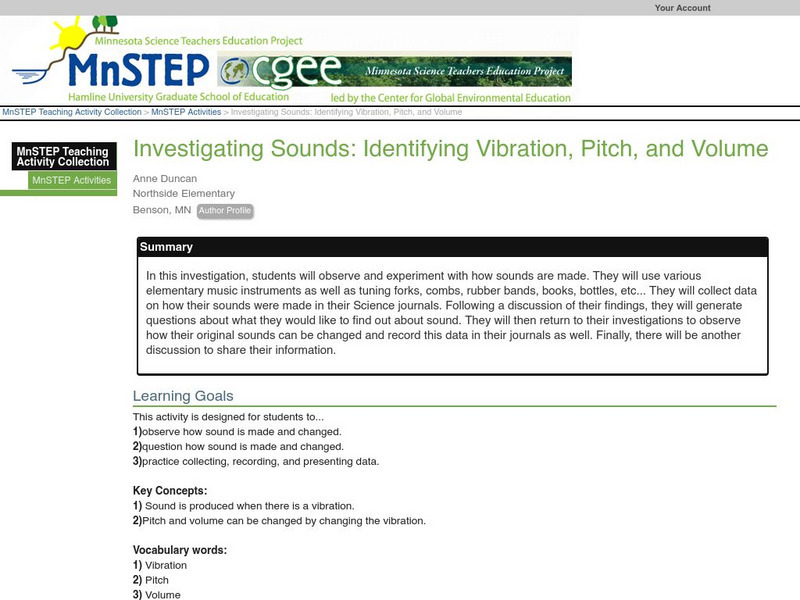
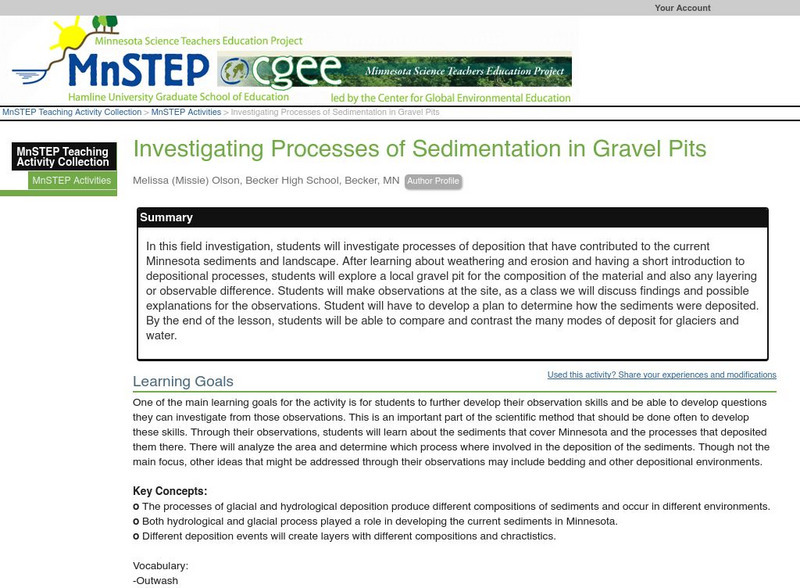

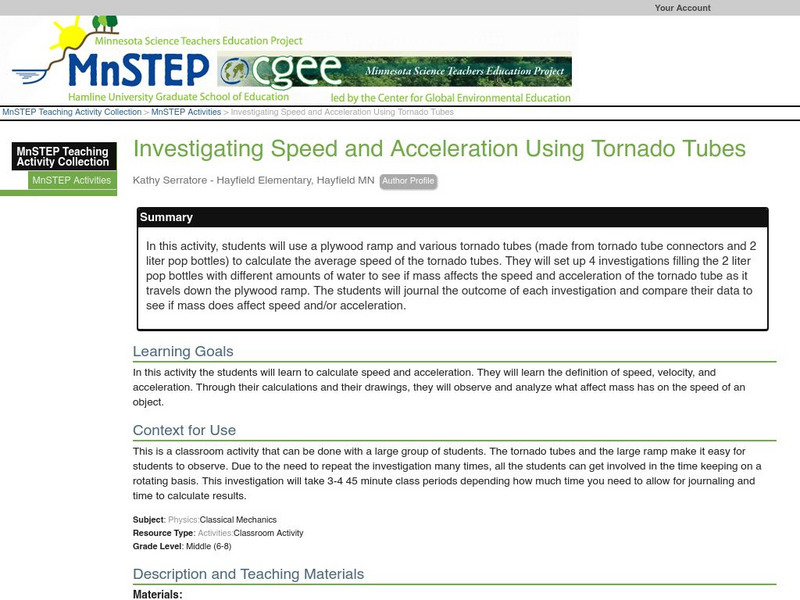

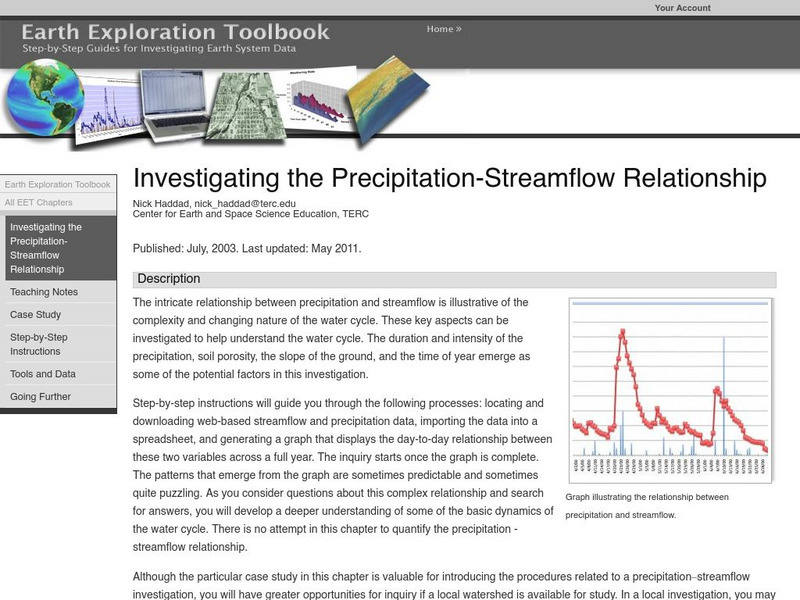

![Fox News: Columbia Accident Investigation Board Report (Volume I) Aug. 26, 2003 [Pdf] Website Fox News: Columbia Accident Investigation Board Report (Volume I) Aug. 26, 2003 [Pdf] Website](https://d15y2dacu3jp90.cloudfront.net/images/attachment_defaults/resource/large/FPO-knovation.png)



